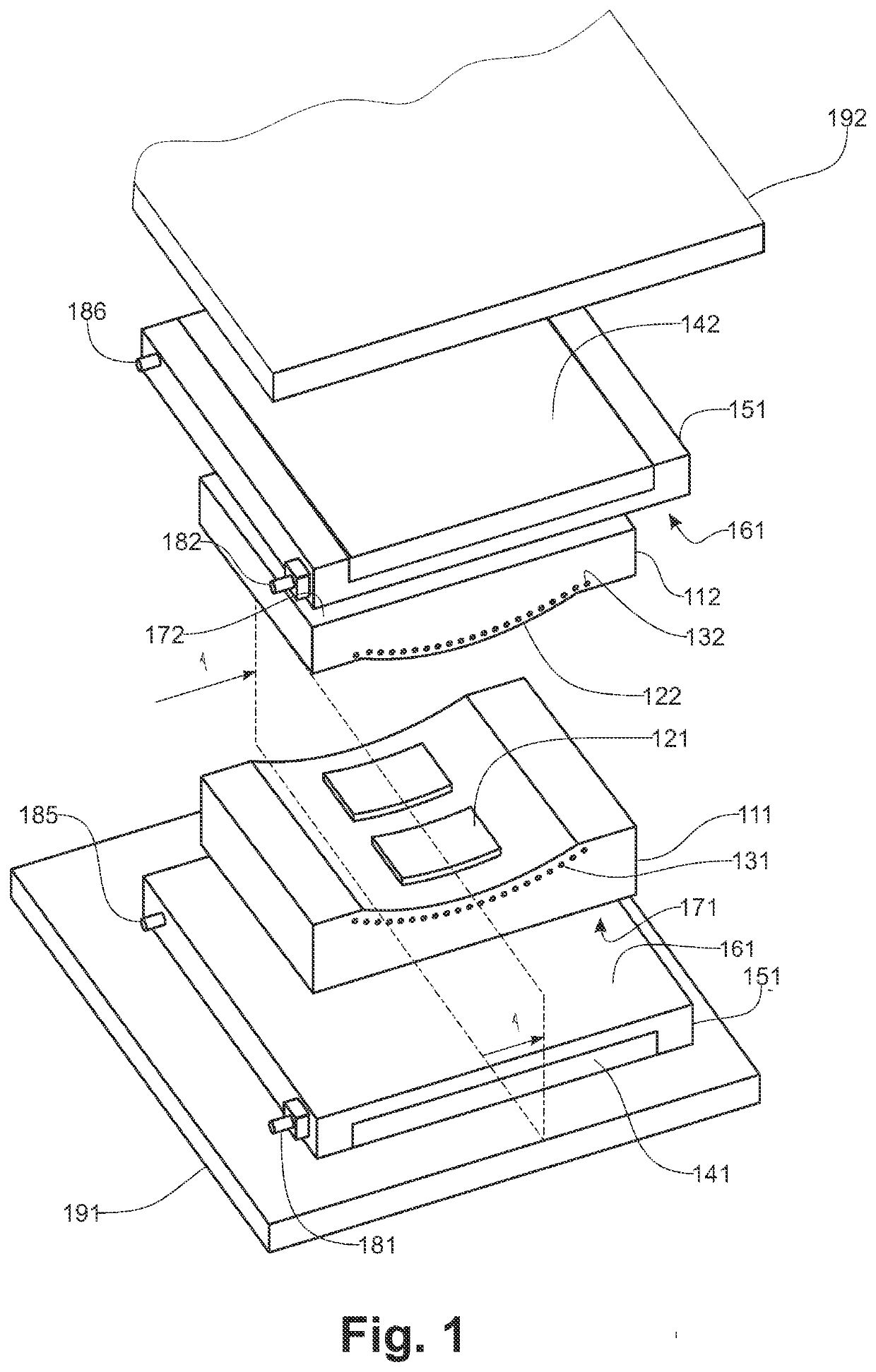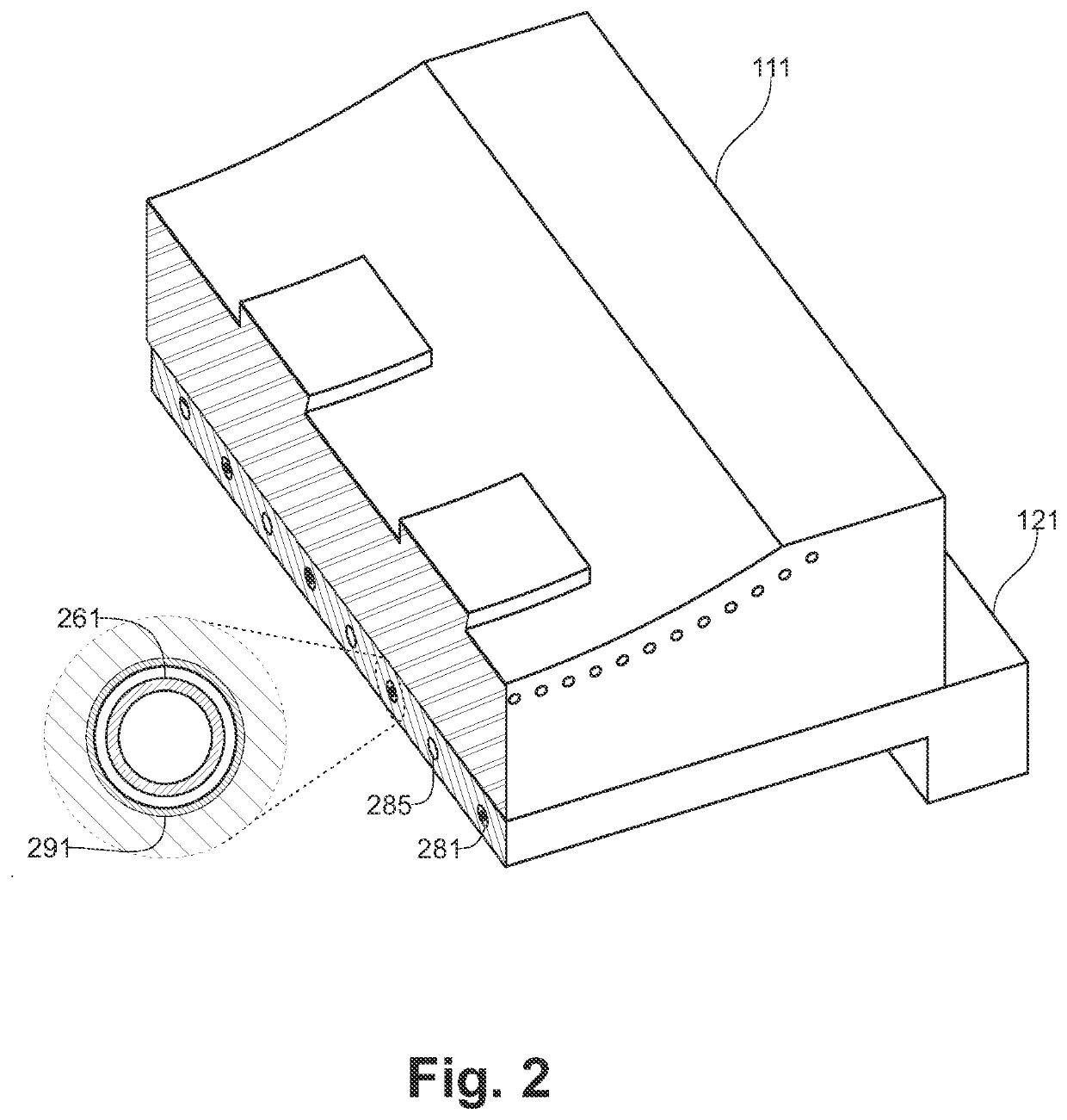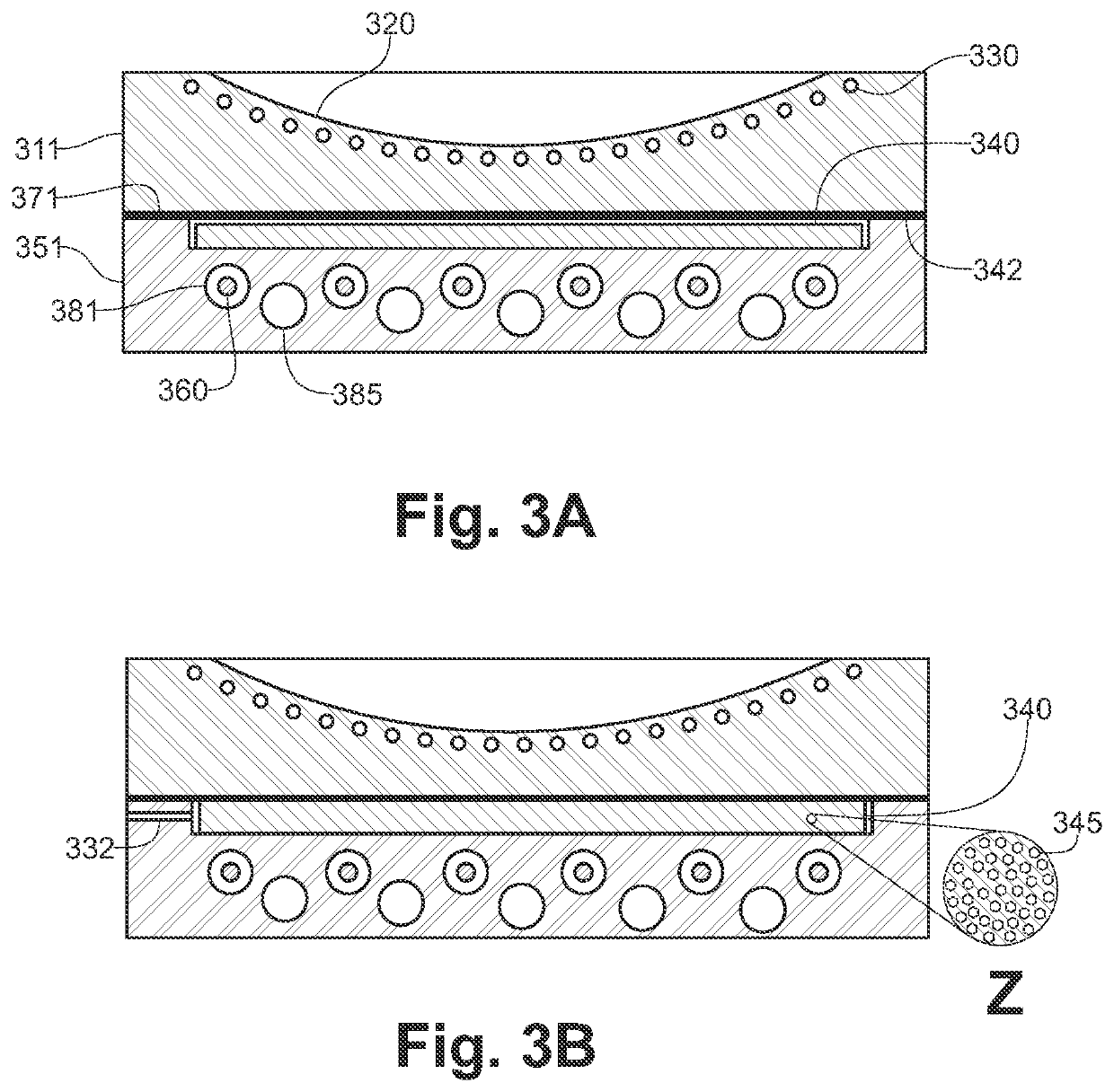Method and device for heating a mould
a mold and heating technology, applied in the field of methods and devices for heating molds, can solve the problems of multiple high-power, high-frequency generators to power the induction heating means for each mold, and high-power die couple, and achieve the effects of reducing the thermal resistance of the contact, promoting heat transfer, and high thermal conductivity
- Summary
- Abstract
- Description
- Claims
- Application Information
AI Technical Summary
Benefits of technology
Problems solved by technology
Method used
Image
Examples
Embodiment Construction
[0037]FIG. 1, according to an exemplary embodiment the mold of the invention comprises 2 dies (111, 112), each die comprises one or more molding surfaces (121, 122) the shape of which is reproduced by the part being formed, the molding surfaces of both dies forming a cavity when the two dies are brought in contact to one another, that is, when the mold is closed.
[0038]Such a pair for dies may be used for various shaping or molding operations like stamping, consolidation in shape, injection molding or combination thereof without these examples being limiting.
[0039]In a stamping, operation a flat blank made of a composite material comprising reinforcing fibers in a thermoplastic polymer matrix is placed on a first die (111). The temperature of the blank is raised to a level where the polymer reaches a pasty state, as for instance by heating the first die, the second die (112) is moved towards the first die, thus closing the mold and urging the flat blank to the shape of the cavity. Th...
PUM
| Property | Measurement | Unit |
|---|---|---|
| power | aaaaa | aaaaa |
| temperature | aaaaa | aaaaa |
| holding temperature | aaaaa | aaaaa |
Abstract
Description
Claims
Application Information
 Login to View More
Login to View More - R&D
- Intellectual Property
- Life Sciences
- Materials
- Tech Scout
- Unparalleled Data Quality
- Higher Quality Content
- 60% Fewer Hallucinations
Browse by: Latest US Patents, China's latest patents, Technical Efficacy Thesaurus, Application Domain, Technology Topic, Popular Technical Reports.
© 2025 PatSnap. All rights reserved.Legal|Privacy policy|Modern Slavery Act Transparency Statement|Sitemap|About US| Contact US: help@patsnap.com



